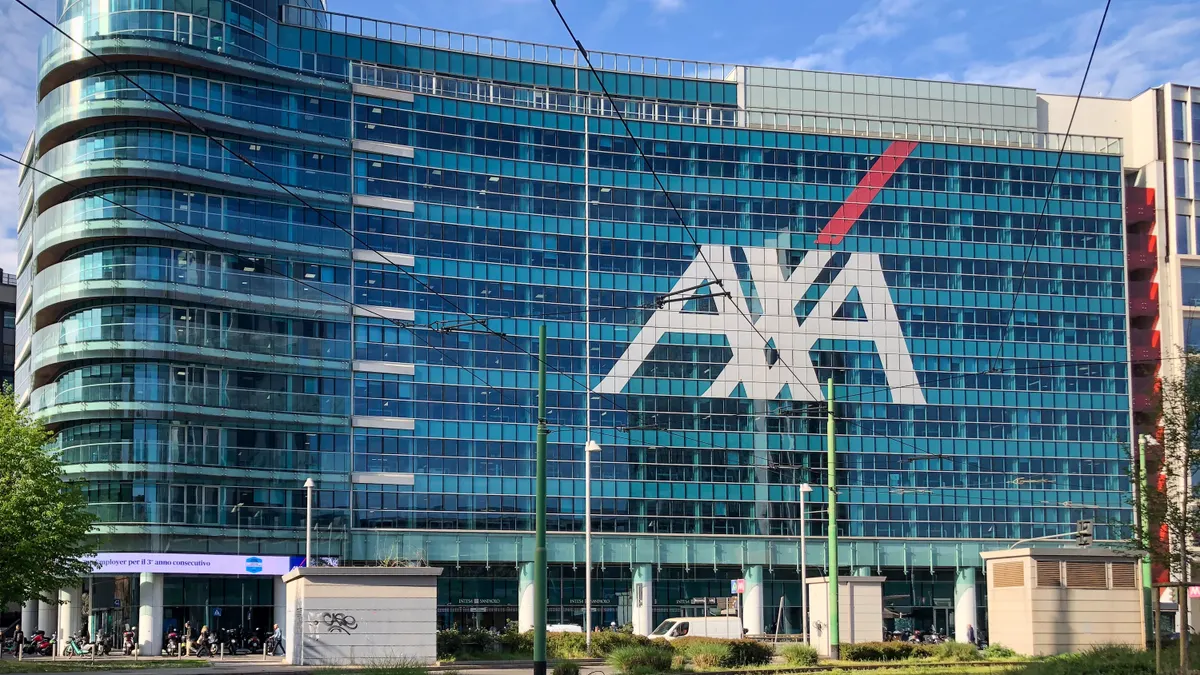Artificial intelligence can enter the enterprise world at a high friction point.
It's understandable. AI's deployment can retool processes or reshape the very products a company offers. It brings all of this change bearing a high-sticker price, as well as the looming threat of sunken costs if something goes wrong.
But businesses are willing to overcome the friction of AI if it means they'll gain the upper hand. While AI is often associated with experimentation, a handful of industries are beginning to perceive tangible benefits from its use, according to a recent study from KPMG which reviewed the state of AI deployment across five industries: retail, transportation, healthcare, finance and technology. The firm surveyed 751 U.S.-based business leaders.
As competition encroaches, the clock is ticking for AI deployment, according to the respondents of the survey.
"There was a consistency in all these industries indicating that, while they felt like they were moving aggressively, they still didn't feel that they were moving fast enough," said Traci Gusher, principal, innovation and enterprise solutions, Artificial Intelligence at KPMG, in an interview with CIO Dive.
Three motivators unite companies deploying AI: the ability to reduce costs, increase growth, and have profitable growth.
But each industry's approach to AI, as well as their challenges and obtained results, may vary.
Retail
If there's one market where AI use is appointing winners and losers, it's retail. Capgemini estimates AI could add as much as $300 billion in value for the retail sector.
The financial benefits from AI projects at companies, such as Target and Walmart, create a sizable financial advantage between laggards and early adopters, according to Rob Saker, global industry leader for retail at analytics company Databricks, in an email to CIO Dive.
"If the remainder of the industry doesn’t adopt machine learning and AI by 2020, they may be at an insurmountable disadvantage," Saker said.
The challenge ahead for retail lies in taking the technology it currently uses to improve consumer experience and turn it inward to find efficiencies.
"Retail was a very early adopter" that kept AI secluded within the marketing organization, said Gusher. For nearly a decade the industry applied AI to client segmentation, targeting and customer churn.
Now, retailers' call to action is to use AI to improve middle and back office functions, including improved financial forecasting and supply chain management, KPMG found.
Transportation
The transportation industry has high expectations for the impact of AI. But there are multiple ways of interpreting the impact.
For nine in 10 industry leaders (92%) AI will help build efficiency into their organizations, an expectation ranked higher than in any other industry. But transportation decision-makers are also aware of the risks: 77% feel AI directly threatens consumer data security or privacy, per the KPMG study.
Transportation's interest in AI is largely driven by autonomous vehicles, and the transformative impact they're expected to deliver on how cities operate. This intersection of technology and public life led to 82% of industry leaders to say government should "to some extent" be involved in AI regulation to some extent.
The interest in the ethical layer of AI is a cross-industry trend. For transportation, it's a sign of advanced adoption and understanding of the technology.
"When an industry is getting to the point where they're saying 'we want government involvement in the way that we are ethically using AI,' to me, that indicates a certain level of maturity and sophistication," said Gusher.
Healthcare
Healthcare is bullish on the advantages of AI, though its main intent is focused on the customer.
For 91% of healthcare industry respondents, AI is increasing access to care for patients. In a separate study published by UnitedHealth Group's health services arm Optum, half of healthcare organizations expect the technology to also deliver financial benefits, with positive return on investment in three years.
In a highly regulated industry, such as healthcare, access to the right data sets — the backbones of successful AI deployment — hinder the speed at which healthcare companies can experiment with this technology, Gusher said.
A hesitation to move their systems to the cloud adds more friction to AI use, a trait healthcare has in common with the financial services industry.
Finance
A shift in consumer interest is making the financial services industry gear up for a radically different landscape, one in which non-traditional institutions attract more consumer interest.
In this new playing field, AI will ease the burden of regulation and allow companies to return attention to consumer experience.
"The amount of data that is required to comply with with different types of regulations is massive, and they beg for AI approaches," said Gusher.
Though financial services industries rely on AI for product portfolio management and customer segmentation, the industry is called to lessen the resources and effort it devotes to regulatory burden with AI.
The financial services industry expects AI to have a more positive impact on customers and end users (44%) than back office functions (37%).
Technology
Unsurprisingly, when it comes to AI readiness, the technology industry leads the pack. Still, the relentless clip at which the tech sector moves makes even early adopters feel like laggards.
Eight in 10 (79%) leaders say their business should be more aggressive when it comes to AI adoption. And yet the tech industry leads the group when it comes to adoption: 63% of technology respondents say AI is moderately to fully functional.
Tech companies have traditionally targeted AI efforts at product development, R&D and front-office work. Going forward, the industry's effort will be to increase their AI approach in the back and middle office, where they have traditionally directed less resources.






















